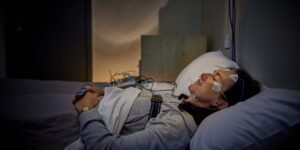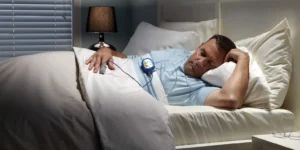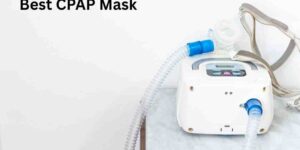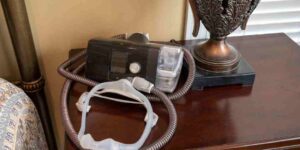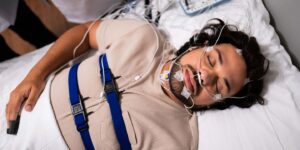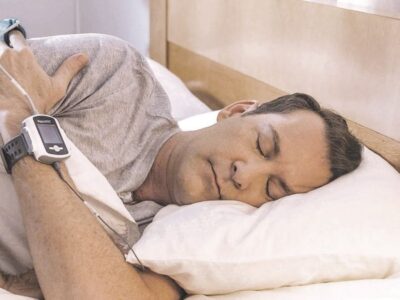
Sleep Study Brisbane: What You Need to Know Before Booking
Oct 07 2025 Sleep Hygiene Air Liquide Healthcare Brisbane bulk-billed sleep studies Brisbane CPAP therapy Brisbane home sleep study Brisbane in-lab sleep study Brisbane obstructive sleep apnoea Brisbane Sleep Study BrisbaneWhat Is a Sleep Study and Why Is It Important?
A sleep study is a comprehensive diagnostic test that monitors your breathing, heart rate, brain activity, and body movements whilst you sleep. This non-invasive assessment helps medical professionals identify sleep disorders that may be affecting your health and quality of life.
Sleep studies in Brisbane commonly diagnose several conditions:
Obstructive sleep apnoea – the most frequent disorder where breathing repeatedly stops and starts
Central sleep apnoea – when your brain fails to send proper signals to breathing muscles
Restless leg syndrome – uncomfortable sensations causing an urge to move legs
Narcolepsy – excessive daytime sleepiness and sudden sleep attacks
The importance of sleep study testing cannot be overstated. Accurate diagnosis leads to targeted treatment plans that dramatically improve your sleep quality, reduce cardiovascular risks, and enhance cognitive function. Untreated sleep disorders contribute to high blood pressure, diabetes, depression, and workplace accidents.
You’ll find that proper diagnosis through sleep studies enables healthcare providers to recommend appropriate therapies, from CPAP machines to lifestyle modifications, ensuring you receive the most effective treatment for your specific condition.
What Types of Sleep Studies Are Available in Brisbane?
Brisbane residents have access to two primary types of sleep studies that cater to different diagnostic needs and patient preferences.
In-Lab Sleep Study
An in-lab sleep study requires you to spend the night at a specialised sleep clinic where comprehensive monitoring equipment tracks multiple physiological parameters. This method captures detailed data including brain waves, eye movements, muscle activity, heart rhythm, and breathing patterns throughout the night.
Home-Based Sleep Study
A home-based sleep study allows you to complete the diagnostic process in your own bedroom using portable monitoring equipment. You’ll collect the device from a clinic, wear it overnight at home, then return it for analysis.
When Each Type Is Recommended
In-lab studies are typically recommended when:
Complex sleep disorders beyond sleep apnoea are suspected
Previous home studies produced inconclusive results
You have significant medical conditions affecting sleep
Home-based studies are suitable when:
Obstructive sleep apnoea is the primary concern
You prefer sleeping in familiar surroundings
Mobility or transportation presents challenges
The types of sleep studies Brisbane clinics offer each have distinct advantages. In-lab studies provide comprehensive data but require overnight clinic stays, whilst home-based options offer convenience with focused monitoring capabilities.
Who Should Consider Booking a Sleep Study?
Understanding the signs that indicate a need for a sleep study can help you decide if you should undergo sleep testing for your health. There are several important factors that suggest you may benefit from a professional assessment.
Primary Sleep Disorder Symptoms
The most common reasons for getting a sleep test in Brisbane include:
Loud, persistent snoring that disrupts your partner’s sleep
Excessive daytime fatigue despite adequate sleep hours
Witnessed breathing pauses during sleep (sleep apnoea episodes)
Morning headaches and dry mouth upon waking
Difficulty concentrating during daytime activities
Restless or fragmented sleep patterns
Occupational Requirements
Certain professions require regular sleep assessments for safety reasons. Workers in mining, aviation, commercial driving, and heavy machinery operation often need to undergo sleep studies to maintain their professional licences and ensure workplace safety standards.
The Referral Process
Your general practitioner plays a crucial role in the process of getting a sleep study. They will evaluate your symptoms, medical history, and occupational requirements before giving you the necessary referral. This referral is important as it ensures eligibility for Medicare coverage and connects you with the right sleep specialists who can recommend the most appropriate testing method for your specific situation.
How Does the Patient Pathway Work in Brisbane?
The patient pathway sleep study Brisbane follows a structured approach that ensures comprehensive care from initial consultation to ongoing treatment. Your journey begins when your GP identifies potential sleep disorder symptoms and provides a referral for diagnostic testing.
Step 1: GP Referral and Assessment
Your general practitioner evaluates your symptoms and medical history before issuing a referral to a sleep specialist or diagnostic facility. This referral process sleep test ensures Medicare coverage and appropriate clinical oversight.
Step 2: Sleep Study Scheduling
Facilities like Air Liquide Healthcare coordinate your appointment, whether for home-based or in-lab testing. You’ll receive detailed preparation instructions and equipment fitting if required.
Step 3: Data Collection and Analysis
Trained sleep physicians analyse your study results, examining breathing patterns, oxygen levels, and sleep architecture. These specialists possess expertise in identifying various sleep disorders such as sleep apnoea and determining appropriate treatment protocols.
Step 4: Treatment Planning
Your results return to your referring GP alongside specialist recommendations. Treatment options may include CPAP therapy, lifestyle modifications, or additional specialist consultations.
Step 5: Ongoing Management
Regular follow-up appointments monitor treatment effectiveness, with therapy adjustments made as needed to optimise your sleep health outcomes.
What Should Patients Expect During an In-Lab Sleep Study?
The in-lab sleep study experience Brisbane facilities offer takes place in comfortable, hotel-like rooms designed to promote natural sleep patterns. You’ll arrive at the specialised clinic in the evening, typically between 7-9 PM, where trained sleep technicians will prepare you for the overnight monitoring procedures.
Monitoring Equipment Setup
Sleep technicians attach various sensors to monitor your sleep patterns:
Electroencephalogram (EEG) electrodes on your scalp to measure brain waves
Electrooculogram (EOG) sensors near your eyes to track eye movements
Electromyogram (EMG) electrodes on your chin and legs to monitor muscle activity
Respiratory belts around your chest and abdomen to measure breathing effort
Nasal cannula to detect airflow
Pulse oximeter on your finger to monitor oxygen levels
The setup process takes approximately 30-45 minutes. You can bring personal items like pyjamas, toiletries, and reading materials to maintain your normal bedtime routine.
Professional Supervision
Qualified sleep technicians monitor you throughout the night from a separate control room. They observe your sleep patterns in real-time and can address any equipment issues or concerns that arise during the study.
How Do Home-Based Sleep Studies Work?
Home-based sleep study Brisbane options provide a convenient alternative to overnight clinic stays. You’ll visit a specialised clinic where trained technicians fit you with portable sleep monitoring devices. The equipment typically includes chest and abdominal bands, a nasal cannula, and finger sensors that attach easily to your body.
The portable devices record comprehensive data throughout your sleep:
Breathing patterns – detecting interruptions and irregularities
Heart rate variability – monitoring cardiovascular responses
Oxygen saturation levels – measuring blood oxygen drops
Body position – tracking sleep posture changes
Snoring intensity – recording sound levels and frequency
You sleep in your own bed using your regular routine, which often produces more natural sleep patterns compared to clinic environments. The equipment operates silently and won’t disturb your partner’s sleep.
Home studies offer significant advantages including sleeping in familiar surroundings, maintaining your usual bedtime routine, and avoiding the costs associated with overnight facility stays. You simply return the equipment the following day, where specialists analyse the collected data to identify potential sleep disorders like obstructive sleep apnea.
What Are the Costs and Coverage Options for Sleep Studies in Brisbane?
Understanding the financial aspects of sleep studies helps you make informed decisions about your healthcare journey. Bulk-billed sleep studies Brisbane options are available for eligible patients, making diagnostic testing accessible without upfront costs.
Medicare Coverage for Sleep Studies:
Diagnostic sleep tests qualify for Medicare rebates when they meet MBS (Medicare Benefits Schedule) guidelines, such as those outlined in this Medicare coverage database.
Your GP referral ensures the study meets Medicare requirements.
Home-based sleep studies typically receive full Medicare coverage for eligible patients.
Private Health Insurance Benefits:
Private health insurers often provide coverage for CPAP therapy under specific packages, though coverage varies between providers. You’ll need to check your policy details for:
CPAP equipment rental or purchase
Therapy initiation programmes
Ongoing support services
For more information on how insurance covers CPAP therapy, you can refer to this resource.
Cost Considerations:
Home-based studies generally offer more cost-effective solutions compared to in-lab testing. Providers like Air Liquide Healthcare work with Medicare and private insurers to minimise your out-of-pocket expenses. The comprehensive approach includes not just the diagnostic test, but potential ongoing therapy management, creating better value for your healthcare investment.
Which Providers Offer Comprehensive Sleep Solutions in Brisbane?
Air Liquide Healthcare Sleep Solutions Brisbane stands as Australia’s largest facilitator of home sleep apnoea studies and therapy management. Their end-to-end patient pathway covers everything from initial diagnosis through ongoing treatment support, with all services validated by qualified Sleep Physicians.
The company’s integrative approach means you receive comprehensive care under one roof:
Home-based sleep studies using non-invasive recording technology
CPAP therapy initiation and titration programmes
Ongoing therapy guidance and regular check-ups
Equipment support through manufacturer partnerships
CPAP therapy providers Brisbane benefit from Air Liquide Healthcare’s extensive network of partnerships with leading equipment manufacturers. Their coverage extends through multiple sleep brands including:
SNORE Australia
Healthy Sleep Solutions
Mycroft
Complete Care
Sleep Disorder Australia (SDCA)
This network ensures you have access to the latest CPAP technology and local support services. The partnerships create a robust support system that connects patients with appropriate equipment suppliers and ongoing maintenance services throughout the Brisbane metropolitan area.
Moreover, it’s important to understand the significance of CPAP therapy in managing sleep apnoea. This therapy is not just about providing a machine; it’s about offering a comprehensive solution that includes education, support, and regular follow-ups to ensure optimal usage and comfort for the patient.
How Should Patients Prepare Before Their Sleep Study Appointment?
Preparing for home sleep study Brisbane requires specific steps to ensure accurate data collection and successful testing outcomes. Your preparation directly impacts the quality of results your sleep physician receives.
Essential Pre-Study Requirements:
Shower before your appointment – Clean skin allows electrodes and sensors to adhere properly throughout the night
Avoid all hair products including gels, sprays, oils, or styling creams that create barriers between sensors and your scalp
Skip skincare products such as moisturisers, lotions, or makeup on areas where electrodes will be placed
Remove nail polish from at least one finger to ensure accurate oxygen level monitoring
Additional Preparation Guidelines:
Your sleep technician will provide detailed instructions specific to your study type. Home-based studies require you to collect equipment from the clinic beforehand, where staff demonstrate proper sensor placement. You’ll receive clear guidance on maintaining normal sleep routines while wearing monitoring devices.
Tips for successful sleep test
Go to bed at your usual time
Avoid caffeine or alcohol on testing day
These preparing for home sleep study Brisbane steps maximise the accuracy of your diagnostic results. Visit https://uhhmassage.com/sleep-study-adelaide-what-to-expect-and-how-to-prepare/ to get more about what to expect and how to prepare for sleep study?
What Happens After the Sleep Study Is Completed?
Your sleep study data is carefully analysed by a qualified sleep physician who specialises in interpreting sleep study results Brisbane. This specialist reviews multiple data points collected during your study, including breathing patterns, oxygen levels, heart rate variations, and sleep stage transitions to identify any underlying sleep disorders.
The physician compiles a comprehensive report detailing their findings and recommended treatment options. Your referring GP receives this detailed analysis along with specific treatment recommendations. During your post-sleep test consultation, you’ll discuss:
Diagnosis confirmation – whether sleep apnea or other disorders were detected
Severity assessment – mild, moderate, or severe classification if applicable
Treatment options – including CPAP therapy initiation if required
Next steps – referrals to therapy providers or additional testing needs
Air Liquide Healthcare facilitates this entire process through their integrated approach, connecting you with appropriate therapy management services when treatment is required. Your GP coordinates ongoing care whilst specialist sleep physicians ensure accurate diagnosis and optimal treatment planning for your specific condition.
FAQs About Sleep Studies in Brisbane
1. What is a sleep study and why is it important?A sleep study is a diagnostic test that monitors breathing, heart rate, brain activity, and body movements during sleep to identify disorders like sleep apnea, restless leg syndrome, and narcolepsy, enabling targeted treatment plans.2. What types of sleep studies are available in Brisbane?Brisbane offers in-lab sleep studies for comprehensive monitoring and home-based studies for convenient testing of primarily obstructive sleep apnea.3. Who should consider booking a sleep study?Individuals with loud snoring, daytime fatigue, witnessed breathing pauses, morning headaches, or difficulty concentrating may need a sleep study. Certain professions, like mining or commercial driving, may also require testing for safety reasons.4. How does the patient pathway for a sleep study work in Brisbane?The pathway includes GP referral, scheduling of home or in-lab testing, data collection, specialist analysis, treatment planning, and ongoing management with regular follow-ups.5. What should patients expect during an in-lab sleep study?Patients stay overnight in a comfortable clinic room while trained technicians attach sensors to monitor brain waves, eye movements, muscle activity, breathing, and oxygen levels.6. How do home-based sleep studies work?Patients wear portable monitoring devices overnight in their own bed, tracking breathing, heart rate, oxygen saturation, sleep posture, and snoring intensity, with minimal disruption to normal routines.7. What are the costs and coverage options for sleep studies in Brisbane?Home studies are more cost-effective and may be fully covered by Medicare for eligible patients. Private health insurance can cover CPAP therapy, consultations, and ongoing support, depending on the policy.8. Which providers offer comprehensive sleep solutions in Brisbane?Air Liquide Healthcare Sleep Solutions provides end-to-end care including home studies, CPAP therapy initiation, follow-up support, and equipment management, in partnership with leading sleep brands.9. How should patients prepare before their sleep study?Patients should shower, avoid hair and skincare products, remove nail polish, follow equipment instructions, maintain normal sleep routines, and avoid caffeine or alcohol on the testing day.
Read More